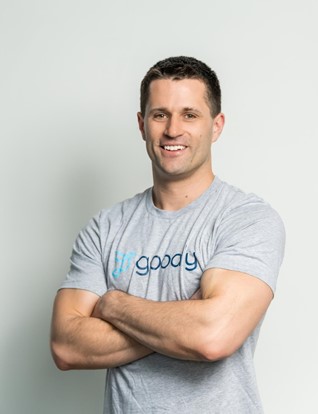Interest in student-debt relief grows as organizations receive CARES Act incentives
How PwC and other organizations are enhancing student-loan repayment programs.

Student debt is an increasingly front-burner priority in the employee-benefits realm, with a staggering sum of roughly $1.7 trillion in student-loans outstanding and 70% of college graduates carrying debt that averages of $40,000.
It typically takes decades to pay off student debt. So while young people are looking to buy homes and start families, they’re carrying a significant financial burden on their shoulders. Employers have seen high levels of depression and anxiety among employees with student-loan debt, making this a financial and a wellness issue.
Last year’s CARES Act made an effort to address this situation, offering tax incentives to organizations that offered certain loan-repayment benefits to employees. The Consolidated Appropriations Act of 2021, passed at the end of the year, extended the tax advantages through 2025.
“This is a watershed moment for employee benefits and the most important legislative change to employee benefits in 40 years since the Revenue Act of 1978 led to the proliferation of the 401k,” says Greg Poulin, co-founder and CEO of Goodly, a debt-repayment vendor based in San Francisco. “The legislation allows employers to help pay down their employees’ student loan debt without employer contributions being taxed, similar to a 401(k) match.”

When it comes to financial wellness, organizations may have the wrong priorities. Roughly half of employers offer some kind of a tuition assistance benefit, Poulin says, but less than 10% of eligible workers take advantage of it. On the other hand, debt-repayment benefits see high engagement, but only 8% of employers offer them. The Society for Human Resources Management estimates that figure could increase by 300% this year. Here’s a look at where some companies are with student-debt benefits, and how they used the CARES Act.
Non-profit sees 100% engagement
The non-profit California Community Foundation, which works to strengthen Los Angeles communities, employs fewer than 100 people, but it offers a generous benefits package to its employees. During a benefits review last year, it elected to begin offering the student-loan repayment benefit. “Instantly, when I heard this was an option, I declared we have to do this,” says Tina Walker, human resources director for the foundation. “It makes so much sense.”

It began offering the benefit on November 1st. At sign-up, 100% of eligible employees took advantage, about 30% of the workforce.
CCF offers the loan benefit to both federal and private loans, making it as inclusive as possible. It also ties its contributions to time served at the company. Employees with less than 10 years of service receive $100 monthly payments, while those with more are offered $200.
Goodly’s Poulin says one reason student-loan benefits are so appealing is that direct, nontaxable payments to employees’ debt can have a profound impact on the ability to become debt-free. “Most student-loan benefit programs require employees to continue making their regular payments,” he says. “This allows employer contributions to be applied on top of that as a secondary payment, directly to the principal of the student loan.”
Small business, big impact
With six out of 10 jobs requiring post-secondary education, many more organizations could offer debt support as a benefit. Poulin says young job seekers, when asked their preference, cited student-debt assistance over all other benefits.
Even small businesses would benefit from a student-loan repayment program. Just ask Mary Hogan, human resources director at Mack Boring & Parts, a family-owned industrial equipment and engine distribution and services company in Somerset, New Jersey. “I had previously spoken with a few employees regarding their loans and the challenges of repayment, especially at a time when some were marrying, buying homes, and starting families,” she says. “Also, I have three sons who all have student-loan debt, and two of them had previously interviewed at companies that offered this benefit.”

To stay competitive, Mack began offering its 45 employees a student debt repayment benefit in early 2019. It contributes $100 a month for each employee enrolled in the program, about 20 percent of the workforce. The company has contributed $21,000 toward student debt so far.
Mack also sought to retain employees by offering this benefit, and indications are that it’s working—the company has had no turnover since March of last year.
Fortune 100 efforts
Meanwhile, the consulting giant PwC noticed the burden of student-loan debt on candidates and sought to address the issue. It was a leader in offering student-loan repayment benefits when it announced its program in 2015. The program was informed by research conducted by PwC with George Washington University the prior year, when it found students were drowning in college debt. More than half were concerned they wouldn’t be able to pay back their loan. Eighty percent of millennials in the study carried at least one source of outstanding long-term debt.
PwC offers its employees $1,200 a year for up to six years to help pay down school debt. Associates could take three years off their payoff period by using its program. Chief People Officer Michael Fenlon says even employees who don’t have student debt are proud of the company for offering the pioneering benefit.

More than 16,000 employees have used PwC’s program since its inception, and PwC has paid off more than $40 million of student debt as a result.
It’s not just students taking out the loans. Parents are shouldering the load as well, taking out loans to fund their children’s educations. Facing retirement burdened with a child’s student loan debt is not unusual. Employees with parent-plus loans are eligible for the student-loan repayment programs at both Mack and PwC.
The DEI connection
Besides the inexpensive cost to employers and the profound impact on student financial well-being, there’s another workplace wellness issue that student loan repayment can address: diversity and inclusion.
Goodly’s Poulin says underrepresented employees disproportionately hold student loan debt:
- Women hold 66% of all outstanding student debt.
- Black debt holders have an average of $25,000 more in student debt than white graduates.
- Latino borrowers hold 31% more student debt than their white peers.
- LGBTQ+ graduates owe $16,000 more than the general population.
PwC’s Fenlon credits its student loan paydown benefit for contributing to the diversification of its workforce. Its goals are not only recruitment and retention but also to build a diverse talent pipeline.
Poulin and other experts think the tax exemption will be made permanent. “It’s abundantly clear that employer-sponsored student-loan repayment is going to be the number one new benefit that employers start providing their employees in 2021,” Poulin says. “It will become table stakes right along with employer-provided health insurance and 401(k) in the years to come.”
COMMENT
Ragan.com Daily Headlines
RECOMMENDED READING
Tags: benefits, CARES Act, financial wellness, student loan repayment

